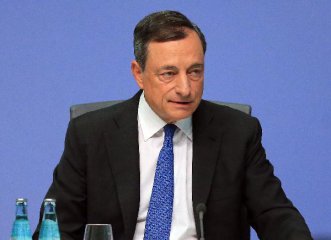China gave domestic banks long-awaited autonomy on Friday to set their deposit rates, but analysts said there will not be a race to raise interest rates to win over savers. China began interest rate liberalization last year, gradually widening the floating range for the benchmark deposit rate set by the People's Bank of China (PBOC), the central bank. Friday's elimination of floating range controls indicated that "China's interest rates have been basically liberalized," said a PBOC statement Monday, calling the move a "significant milestone" in the country's financial reform.
The central bank lifted controls on interest rates for bank loans in July 2013. The PBOC's latest move came as Chinese savers move their deposits to higher-return wealth management products from non-bank companies, such as those offered by IT giants Alibaba and Tencent. Many predicted that interest rate liberalization will allow banks to fight back, but so far China's top six lenders have only slightly raised deposit rates.
The Industrial and Commercial Bank of China, the Agricultural Bank of China, the Bank of China, the China Construction Bank, the Bank of Communications and the China Merchants Bank set a one-year deposit rate at 1.75 percent, compared with the benchmark rate of 1.5 percent. "Interest rates will not increase substantially, although banks are allowed to raise them," said E Yongjian, a researcher with the Bank of Communications.
China Minsheng Bank and China CITIC Bank were more generous, offering a 2-percent rate for one-year savers. China's major financial institutions have long coordinated their policies to avoid too much competition. The rate increases were quite moderate, and many banks even slashed interest rates for current deposits by 0.05 percentage point from the benchmark to 0.3 percent. The central bank widened the floating range to 1.2 times the benchmark rate last November, then to 1.3 times the benchmark in March and to 1.5 times in May. "Since March, most banks have not raised their interest rates as the PBOC allowed.
There is no need to put a floating range control in place," said Zeng Gang, a banking industry researcher with the Chinese Academy of Social Sciences. Xu Hanfei, an analyst with brokerage Guotai Jun'an Securities, ruled out an "interest rate war," saying that financial institutions will not make unreasonably favorable offers, as both inflation and the investment return rate are now very low. Dong Ximiao, a guest researcher with Renmin University of China, said interest rates will remain at very low levels as policy makers seek to encourage individuals and enterprises to spend, not save, amid the economic slowdown. "Many Western countries have near-zero or even negative interest rates. China is probably moving in this direction," Dong predicted.




















Latest comments